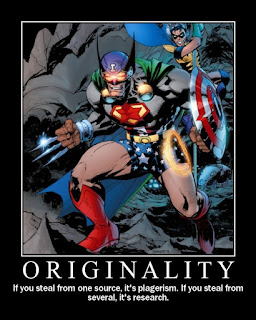Book subject: Junk collection
One thing developers often use to inflate play time is to have players do a variety of things not actually related to the story. This offers a little something for those players who consider themselves more "hardcore" and want to get 100% completed (or whatever strange number is the maximum, like 200.6%). Though sidequests do fall into this category, and are sometimes even hidden just as remotely, this chapter is going to address the idea of just finding junk laying around the game. Junk collection like this can be as meaningless as just collecting them for the sake of collection. They can also offer minor assistance to your character, which can pay off big once you have them all.
For example, the Metroid series is famous for having you seek extra maximum ammunition and health. In fact, Metroid Prime offered junk both with and without meaning. In order to get 100% completion, you had to scan everything that would make an entry in your logbook (basically records and creatures). Some of it was only available at specific points of the game too, so if you missed them, you actually had to restart from the beginning. In order to get all the useful junk, you had to collect the other required upgrades you acquire through natural gameplay. They gave you more abilities to get to places you couldn't before. If you wanted to absolutely be at your peak for every confrontation you ever got, then you would have to re-explore every area you had previously explored every time you get a new ability. This is obviously a very taxing thing, though it does make the game easier to actually beat. It's more likely that you'll just come back for these things after you've beaten the main story, or at least gotten close to it.
The story is essentially the same regardless of game. If any game offers you more abilities, connections, etc. and you have the capability of going most anywhere in the game's world, chances are high that there will be more optional things you can access this way. You could take notes on suspicious-looking places that would be worth a back-track as you play. This will certainly benefit you, but don't rely too heavily on it. What you thought was suspicious could just be some innocent thing that doesn't even offer junk as a prank, or it could be a leftover of some design that got scrapped. Similarly, if stuff is to be hidden, there will be instances where you're supposed to just gloss over them entirely, and only the slightest hint of anything strange will be offered. It is for these tidbits that you'll have to trek over the entire game world and spend much of your time micro-examining everything, while also looking for the familiar clues you've been taught along the way. Then there are those secrets which developers vindictively try to hide and give no hint whatsoever to locating them (case in point, search for the easter egg of Batman: Arkham Asylum).
As you can see, junk collection is very time-extensive and the rewards are usually very slight. Just know what you're getting into when you being such a quest. In almost every case, the experience will be like scrubbing floors with a toothbrush.
For example, the Metroid series is famous for having you seek extra maximum ammunition and health. In fact, Metroid Prime offered junk both with and without meaning. In order to get 100% completion, you had to scan everything that would make an entry in your logbook (basically records and creatures). Some of it was only available at specific points of the game too, so if you missed them, you actually had to restart from the beginning. In order to get all the useful junk, you had to collect the other required upgrades you acquire through natural gameplay. They gave you more abilities to get to places you couldn't before. If you wanted to absolutely be at your peak for every confrontation you ever got, then you would have to re-explore every area you had previously explored every time you get a new ability. This is obviously a very taxing thing, though it does make the game easier to actually beat. It's more likely that you'll just come back for these things after you've beaten the main story, or at least gotten close to it.
The story is essentially the same regardless of game. If any game offers you more abilities, connections, etc. and you have the capability of going most anywhere in the game's world, chances are high that there will be more optional things you can access this way. You could take notes on suspicious-looking places that would be worth a back-track as you play. This will certainly benefit you, but don't rely too heavily on it. What you thought was suspicious could just be some innocent thing that doesn't even offer junk as a prank, or it could be a leftover of some design that got scrapped. Similarly, if stuff is to be hidden, there will be instances where you're supposed to just gloss over them entirely, and only the slightest hint of anything strange will be offered. It is for these tidbits that you'll have to trek over the entire game world and spend much of your time micro-examining everything, while also looking for the familiar clues you've been taught along the way. Then there are those secrets which developers vindictively try to hide and give no hint whatsoever to locating them (case in point, search for the easter egg of Batman: Arkham Asylum).
As you can see, junk collection is very time-extensive and the rewards are usually very slight. Just know what you're getting into when you being such a quest. In almost every case, the experience will be like scrubbing floors with a toothbrush.





Comments
Post a Comment
Comments are very welcome!